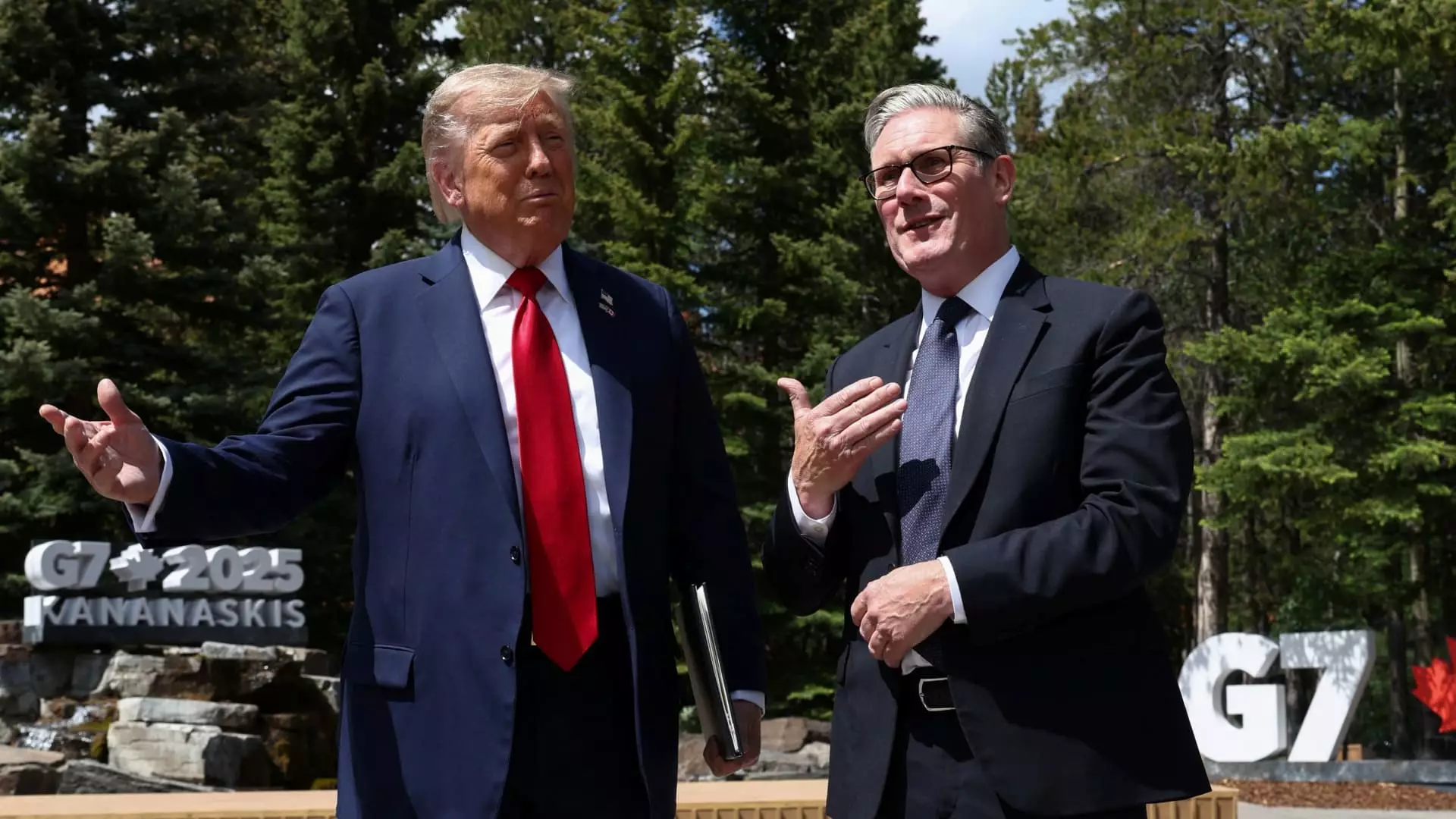In a surprising twist befitting the unpredictable nature of U.S. politics, President Donald Trump and British Prime Minister Keir Starmer signed an agreement that ostensibly lowers tariffs on imports from the U.K. as both countries inch towards a formal trade deal. While the deal is branded as a significant diplomatic victory, it raises serious concerns regarding the long-term sustainability of the U.K.’s trade relationship with the United States. There is a palpable sense of optimism in the air, but beneath that veneer lies a precarious situation that could unravel at any moment.
The American president’s casual dismissal of complex trade dynamics—exemplified by his blunder when he referred to the agreement as being with the European Union—suggests a troubling lack of depth in understanding international trade policy. Moreover, while President Trump hailed the nature of U.S.-U.K. relations as “fantastic,” one must critically ponder whether the significance of this agreement overshadows deeper issues that have yet to be addressed, such as the undecided tariffs on steel and aluminum and the absence of provisions for crucial industries like pharmaceuticals.
Short-Term Gains vs. Long-Term Stability
The specifics of the trade agreement reveal a favorable arrangement for British automakers, granting an annual quota that allows 100,000 cars to enter the U.S. with a significantly lower tariff rate than other countries. But is this truly the win the U.K. needs, or is it merely a band-aid fix for a gaping wound? The deal’s focus on automobiles and aerospace, while promising, largely sidelines the phalanx of potential concerns that could arise in the near future, such as retaliatory tariffs or changing U.S. domestic policies.
The promises made regarding “reciprocal access” to beef and stricter food safety standards symbolize a tactical maneuver by the U.K. to ensure its products can compete in a challenging market. While it is essential for the U.K. to strike such agreements as it navigates the post-Brexit landscape, there is a nagging feeling that these gains could evaporate without economic resilience at home and a consistent diplomatic strategy. It is all too easy to celebrate short-term wins that can prove costly in the long-term.
Undiscussed Vulnerabilities
An Essential, yet glaring omission in the agreement is the absence of provisions for the pharmaceutical industry, a sector that bolsters the U.K. economy and plays a vital role in global health. Is this oversight a sign that key negotiations were rushed or, worse yet, fruitless? As discussions move forward, there’s an urgent need for both countries to prioritize mutual interests in this sector, lest they indulge in fragile agreements while sidelining industries that require robust and resilient protections.
The U.K. Government’s unwavering confidence in securing this deal and the boastful declarations of “first country” status could be interpreted as a double-edged sword. Sure, the deal positions the U.K. favorably for future negotiations, but this discrepancy in focus on diversified industry protection is a critical gap. A potentially vulnerable economy might find itself tethered to a series of transient agreements that serve Trump’s administration more than they do long-term citizens’ interests.
The Risk of Dependency
In reaffirming the U.K.’s protection against tariff threats due to personal favoritism, President Trump raises concerns over the backdoor nature of international relations. Relying on a willingness rooted in individual preference rather than mutual benefit is a precarious foundation for any trade agreement. The notion that “The U.K. is very well protected. You know why? Because I like them,” suggests a casual, almost capricious approach to policymaking that may expose the U.K. to risk if the political winds shift.
The notion of trade should ideally transcend personal opinions and focus on systematic frameworks that ensure stability for nations. When dependency on political personalities becomes the cornerstone of international trade, how can any nation feel secure in its economic future? The question emerges, is the favorable tariff agreement truly a harbinger of prosperity, or merely a contingent mercy that might be rescinded at any moment?
In the end, while the excitement surrounding this agreement might be palpable, a critical analysis reveals that the interests of the U.K. require far more robust engagement and far-sighted planning than a simple waiver on tariffs or adequate quotas. The undercurrents of this agreement necessitate cautious navigation as the U.K. prepares to transition into a world increasingly defined by entangled trade relationships. Establishing a sustainable trade relationship remains an urgent goal, but it seems the U.K. may still have a long road ahead.

